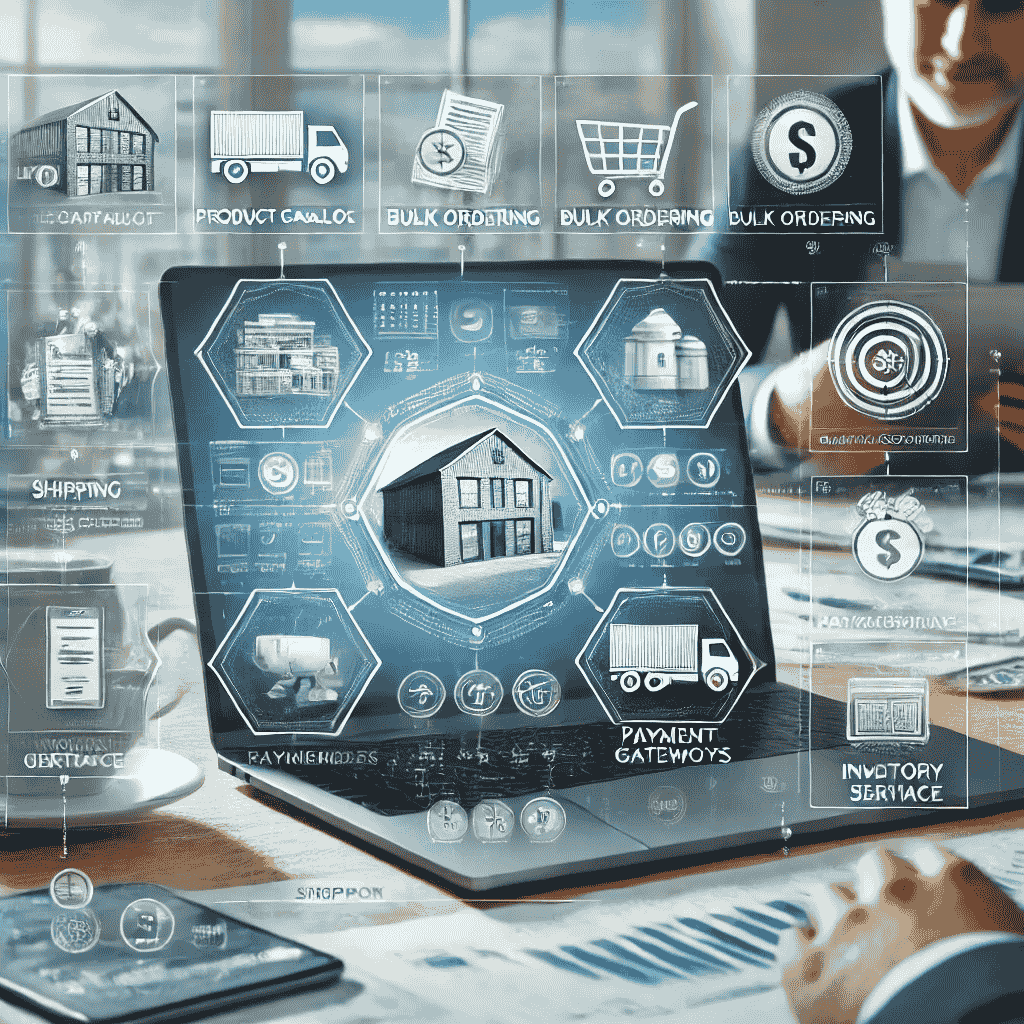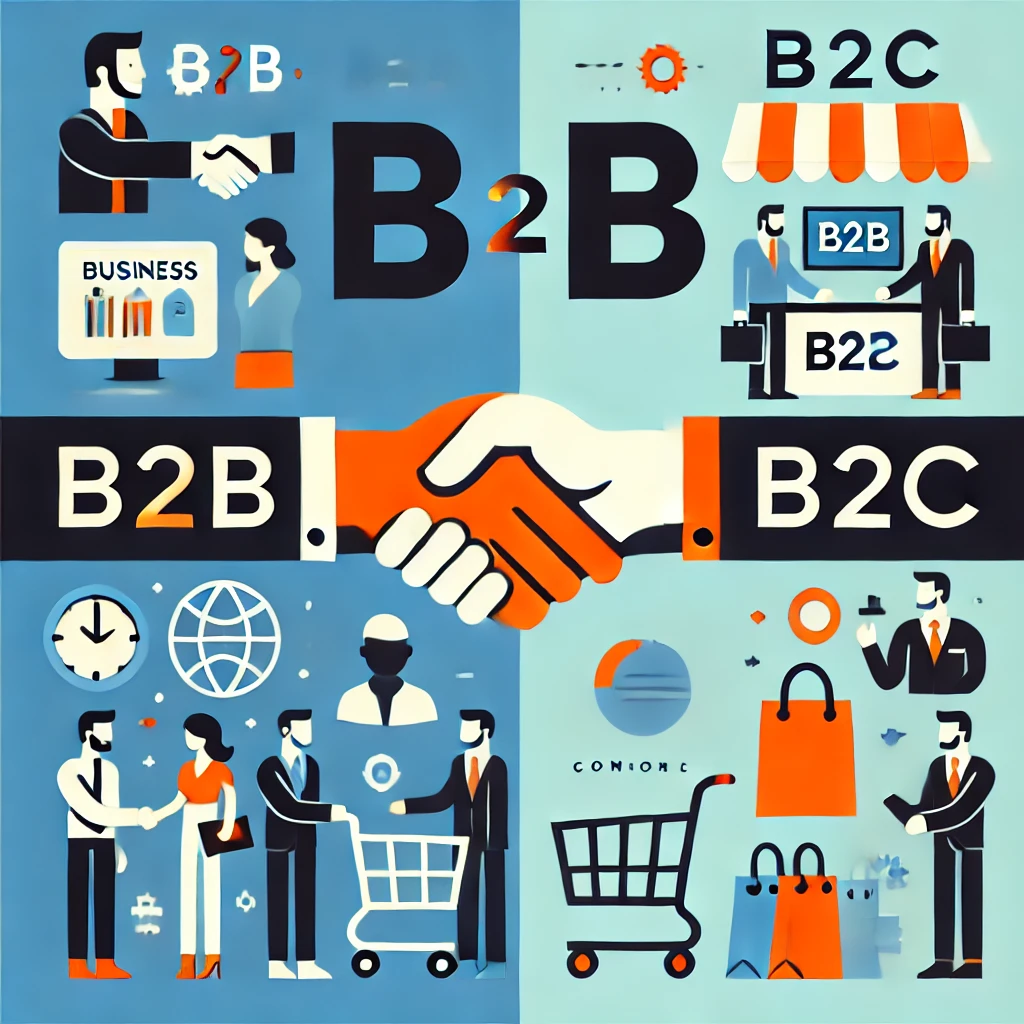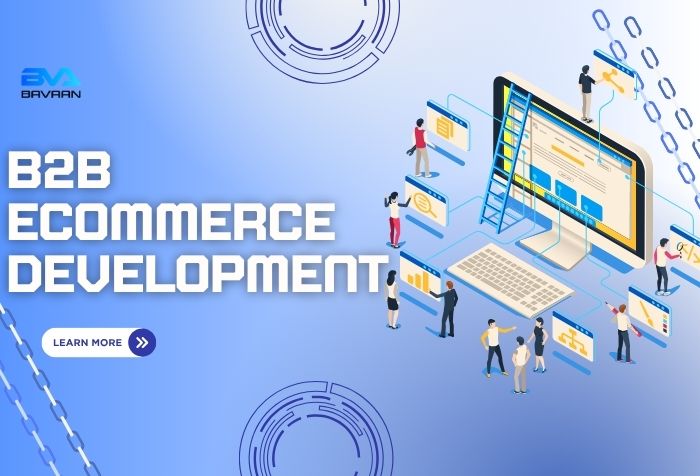In today’s rapidly evolving digital landscape, B2B e-commerce development has become a crucial tool for businesses looking to streamline their processes, scale their operations, and enhance customer satisfaction. Unlike B2C, which caters directly to individual consumers, B2B e-commerce development focuses on facilitating complex transactions between businesses. This approach typically involves larger orders, custom pricing, and longer sales cycles, which means that creating a well-optimized B2B e-commerce platform requires a more specialized approach.
Developing a successful B2B e-commerce platform requires thoughtful planning, execution, and adaptation to industry-specific needs. In this guide, we’ll explore the key steps in B2B e-commerce platform development, the benefits of going digital, and the tools you’ll need to get started.
I. Understanding B2B E-Commerce Development
B2B e-commerce development refers to the process of creating digital platforms and solutions specifically designed for businesses to conduct transactions with other businesses. These platforms allow businesses to sell products, services, or digital goods to other companies. The unique characteristics of B2B e-commerce, such as custom pricing models, large order volumes, and long-term contracts, make B2B e-commerce development more complex than traditional B2C e-commerce. According to industry reports, the global B2B e-commerce market is expected to reach $20.9 trillion by 2027, reflecting a growing trend among businesses to adopt digital solutions for efficiency and scalability.
In the realm of B2B e-commerce development, there is a need to focus on building relationships, automating workflows, and integrating with existing enterprise systems like ERPs (Enterprise Resource Planning) and CRMs (Customer Relationship Management). This type of development ensures that businesses can efficiently manage orders, negotiate pricing, and handle bulk shipments in a seamless digital environment.
II. Why Is B2B E-Commerce Development Important?

The rise of digital transformation has pushed companies to rethink their sales and distribution strategies. B2B e-commerce development is critical for modern businesses aiming to increase efficiency, reduce costs, and improve customer experiences. Here are some key reasons why B2B e-commerce development is essential:
- Automation of Processes: A well-developed B2B e-commerce platform automates manual tasks such as order management, payment processing, and inventory tracking.
- Custom Pricing and Bulk Ordering: B2B e-commerce development allows for flexible pricing structures that cater to specific clients based on their purchasing history, contract terms, or order volume.
- Improved Customer Experience: Offering a self-service portal where customers can place orders, track shipments, and access custom pricing helps strengthen relationships and improves satisfaction.
- Global Reach: With an online presence powered by B2B e-commerce development, companies can reach new international markets without the need for physical storefronts or regional offices.
- Data Analytics: B2B e-commerce development enables companies to gather valuable data on customer behavior, buying patterns, and preferences, helping them optimize their sales strategies.
.
III. Key Components of B2B E-Commerce Development
3.1. B2B E-Commerce Portal Development
One of the most critical aspects of B2B e-commerce development is the creation of a portal that meets the specific needs of business buyers. B2B e-commerce portal development involves building a digital platform where businesses can interact, negotiate, place bulk orders, and manage transactions. Key features of an effective B2B e-commerce portal include:
- Custom Pricing Models: Tailored pricing based on the buyer’s history or negotiated contracts.
- Bulk Order Processing: The ability to handle large volume orders efficiently.
- Multi-User Access: Businesses often have multiple decision-makers involved in purchasing, so a portal must accommodate different user roles (e.g., purchasing agents, managers, finance departments).
- Advanced Search and Filtering: Large B2B catalogs require sophisticated filtering options to help buyers quickly find the products they need.
B2B e-commerce portal development is essential for businesses to provide a smooth and user-friendly experience for their clients.
3.2. B2B E-Commerce Development Services and Companies
Many companies turn to specialized B2B e-commerce development services to ensure their platforms meet the unique needs of their industry. B2B e-commerce development services provide end-to-end solutions, from initial consulting to platform development, design, and integration with existing business systems.
Top B2B e-commerce development companies offer a range of services, such as:
- Custom Platform Development: Building bespoke e-commerce platforms that cater to a company’s specific workflow and operational requirements.
- System Integration: Connecting the e-commerce platform to ERP, CRM, and accounting systems to ensure smooth data flow.
- UX/UI Design: Creating an intuitive user experience to make it easier for businesses to navigate the platform and place orders.
- Ongoing Support and Maintenance: Providing long-term support to ensure the platform remains secure, updated, and functional.
These B2B e-commerce development services are essential for businesses looking to create a seamless, scalable, and efficient digital experience.
3.3. B2B E-Commerce Platform Development
Choosing the right platform for your B2B e-commerce development is crucial. Several B2B e-commerce platform development options exist, from out-of-the-box solutions to fully customized platforms. When selecting a platform, businesses need to consider factors such as scalability, ease of integration, customization options, and long-term maintenance.
Popular platforms for B2B e-commerce development include:
- Magento: Known for its flexibility and robust feature set, Magento is often the go-to platform for larger B2B businesses.
- Shopify Plus: While Shopify is traditionally seen as a B2C platform, Shopify Plus offers features tailored for high-volume B2B transactions, including custom pricing and automation tools.
- BigCommerce: BigCommerce offers built-in B2B functionalities, including wholesale pricing, bulk ordering, and integration with ERP systems.
Each platform has its strengths, and choosing the right one for your B2B e-commerce development project depends on your specific business needs.
IV. B2B vs. B2C E-Commerce Development: What’s the Difference?

Though B2B e-commerce development shares similarities with B2C e-commerce development, there are several key differences that businesses must understand:
| Aspect | B2B E-Commerce Development | B2C E-Commerce Development |
| Target Audience | Businesses (retailers, wholesalers, distributors) | Individual consumers |
| Order Size | Bulk orders, often with negotiated contracts | Single or small orders |
| Pricing | Custom pricing based on relationships or volume | Standard retail pricing |
| Payment Methods | Invoicing, purchase orders, credit terms | Credit cards, digital wallets |
| User Roles | Multiple users per account with different access levels | Single-user accounts |
Understanding these differences is crucial when developing an effective B2B e-commerce platform to ensure it meets the specific demands of business buyers
V. Looking for the Right B2B E-Commerce Website Development?
According to Statista forecasts, the global B2B e-commerce market is projected to reach an astonishing $25.65 trillion by 2027, with a compound annual growth rate (CAGR) of approximately 17.5%. As businesses move toward digitalization, investing in B2B e-commerce development has become more than just a trend—it’s a necessity. Companies that embrace this transformation and invest in developing their B2B e-commerce platforms are positioning themselves for long-term success by enhancing efficiency, expanding their market reach, and optimizing their operations.
At [Your Company], we understand the complex nature of B2B e-commerce development and offer tailor-made solutions to help you overcome the key challenges facing the industry. With practical experience and a proven track record, our team specializes in:
- Minimizing Cybersecurity Risks: We prioritize security in all aspects of B2B e-commerce development, ensuring that your platform is protected against potential threats and data breaches.
- Implementing Advanced Data Management Systems: Managing large volumes of data efficiently is essential for the success of any B2B e-commerce platform. We create systems that allow businesses to store, process, and retrieve data seamlessly.
- Simplifying Integration with Existing Infrastructure: Transitioning to a new digital ecosystem can be daunting, but our team ensures that your B2B e-commerce development integrates smoothly with your current ERP, CRM, and other business tools.
Whether you’re looking for a fully customized B2B e-commerce portal development or seeking a scalable platform that can grow with your business, we have the expertise to deliver solutions of varying complexity. By choosing the right B2B e-commerce development services, you’ll be positioning your company for success in this fast-evolving marketplace.
VI. Frequently Ask Question
6.1. Why should I invest in B2B e-commerce development services?
Investing in B2B e-commerce development services helps ensure that your platform is tailored to meet the specific needs of your business and your clients. These services typically include custom platform development, system integration, UX/UI design, and long-term support, all of which are essential for running a successful B2B e-commerce operation.
6.2. Which platforms are best for B2B e-commerce development?
Popular platforms for B2B e-commerce development include Magento, Shopify Plus, and BigCommerce. Each platform offers unique features tailored to B2B needs, such as custom pricing models, multi-channel selling, and integration with ERP systems. The choice of platform depends on your business’s specific requirements.
6.3. How do I choose the right B2B e-commerce development company?
When choosing a B2B e-commerce development company, look for experience in B2B-specific solutions, customization options, integration capabilities with your existing systems, and long-term support. The company should have a proven track record of delivering successful B2B platforms and an understanding of your industry.
6.4. What is the role of cybersecurity in B2B e-commerce development?
Cybersecurity is essential in B2B e-commerce development to protect sensitive data and secure transactions. A robust B2B platform should have encryption, authentication protocols, and regular security updates to minimize the risk of cyber threats and ensure the safety of customer and company data.
6.5. Can B2B and B2C e-commerce platforms be integrated into one system?
Yes, businesses can create hybrid platforms that cater to both B2B and B2C audiences. This typically involves building a flexible platform with different user roles, pricing structures, and features tailored to both business buyers and individual consumers. It’s important to work with a developer who understands how to integrate these functionalities smoothly.
Final Thoughts
B2B e-commerce is transforming how businesses operate and interact with each other. As more companies embrace digital platforms, the ability to offer seamless, personalized, and efficient online experiences will be key to staying competitive. By understanding the trends, leveraging technology, and focusing on customer satisfaction, B2B companies can thrive in this digital age.
Whether you’re a small business or an established enterprise, investing in a solid B2B e-commerce strategy is essential for long-term growth and success.



